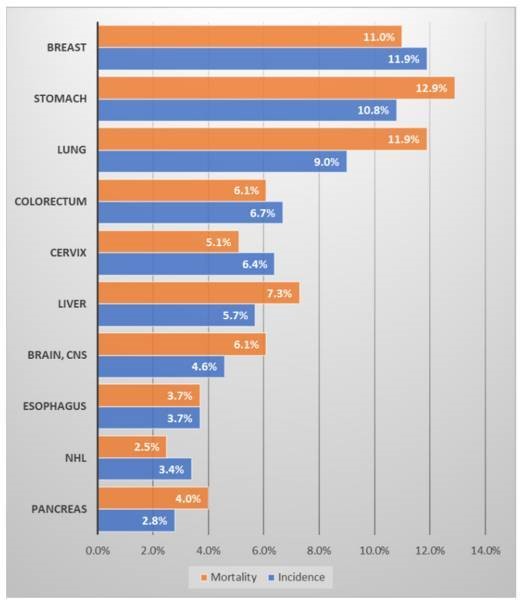Striving for Better Neonatal Outcomes, BRI Facilitates Cutting-edge Genetic Technology Applications in Uzbekistan
2023-11-27
Besides expanding commercial and trade routes for Uzbekistan, the Belt and Road Initiative (BRI) is also crucial in facilitating the country's latest genetic technology applications.
Realizing the potential of genetic technology applications requires advanced facilities such as the Genscreen laboratory located at Tashkent, which became operational in June 2023. This is one of the first certified laboratories in Uzbekistan with next-generation sequencing (NGS) and spectrometry facilities. This laboratory is a joint venture between BGI Genomics and a local partner.
Turdikulova Shakhlokhon Utkurovna, the Deputy Minister of Higher Education, Science, and Innovation, the Republic of Uzbekistan, notes that, "The BRI plays a very important role in the development of cooperation for the transfer of cutting-edge technologies. Technologies in the field of genetic analysis are being introduced into Uzbekistan through Genscreen to help our people get the most high-quality tests in terms of newborn diagnostics for genetic diseases."
Viktoriya Tsay, the Head of the Department of Prenatal and Neonatal Medicine, Genscreen, notes that this Tashkent laboratory enhances the availability and accessibility of health services by delivering advanced screening and diagnostics services at an affordable cost.
With a cross-cultural background, Viktoriya speaks three languages fluently and has a degree in gynecology, mentioning: "After graduation, I worked at a hospital where I saw how the latest applications of molecular biology and genetic technology can enhance maternal and fetal health outcomes."
Viktoriya's journey led her to Genscreen, where she found a new platform to pursue her passion for genetics and biotechnology. As part of her job, Viktoriya educates hospitals on how health outcomes are enhanced by adopting NIFTY prenatal and NOVA neonatal tests. Utilizing mass spectrometry alongside liquid chromatography and fluorescence analysis, these tests deliver fast and accurate results.
Viktoriya notes that: "NOVA neonatal tests, in particular, stand out by simultaneously detecting 48 metabolic disorders, a big improvement compared to previous products that could only detect two disorders." These tests target the earliest possible recognition and management of affected newborns to prevent the morbidity, mortality, and disabilities associated with an inherited metabolic disorder.
When asked about BRI’s impact on Uzbekistan, Viktoriya mentions that many look forward to increased connectivity, regional integration, and the new opportunities resulting from more robust economic ties and collaboration.
Viktoriya also notes that Genscreen is actively promoting genetic technology applications to reduce preventable maternal and newborn deaths in Uzbekistan, which is in line with BRI objectives to enhance global health outcomes: "We work alongside the Ministry of Health to promote our prenatal and neonatal services throughout the country. Since our laboratory became operational in June 2023, we already received samples from provinces outside Tashkent."
In Uzbekistan, six major cancers, breast, stomach, lung, cervical, colorectal, and liver, account for more than half of cancer incidence and mortality based on WHO statistics. Therefore, Viktoriya feels there's room for screening and early detection of breast, cervical, and colorectal cancers to reduce personal and public health expenses.

Ranking of the frequency and mortality of major cancers in Uzbekistan. Data source: Cancer country profile, WHO, 2020; Global Health Observatory, WHO, 2016
In particular, COLOTECT™, a colorectal cancer screening test, promises greater accessibility, as it is a non-invasive solution, unlike a colonoscopy, and allows individuals to conduct this test in the comfort of their homes. Viktoriya comments: "Increasing accessibility is crucial to boost survival rates as colorectal cancer is often diagnosed at a late stage due to the lack of symptoms. When this cancer is detected early, the 5-year relative survival rate is about 90%."
Enhancing public health and fostering international healthcare cooperation is a critical component of BRI. With an advanced laboratory and dedicated professionals like Viktoriya, Genscreen is poised to play a vital role in linking with local partners to deliver improved healthcare services and facilitate capacity-building.
BGI Genomics Fuels Genetic and Healthcare Research Advancements in Uzbekistan
BGI Genomics Spotlights Congenital Pathologies in Uzbekistan
About BGI Genomics
BGI Genomics, headquartered in Shenzhen, China, is the world's leading integrated solutions provider of precision medicine. In July 2017, as a subsidiary of BGI Group, BGI Genomics (300676. SZ) was officially listed on the Shenzhen Stock Exchange.